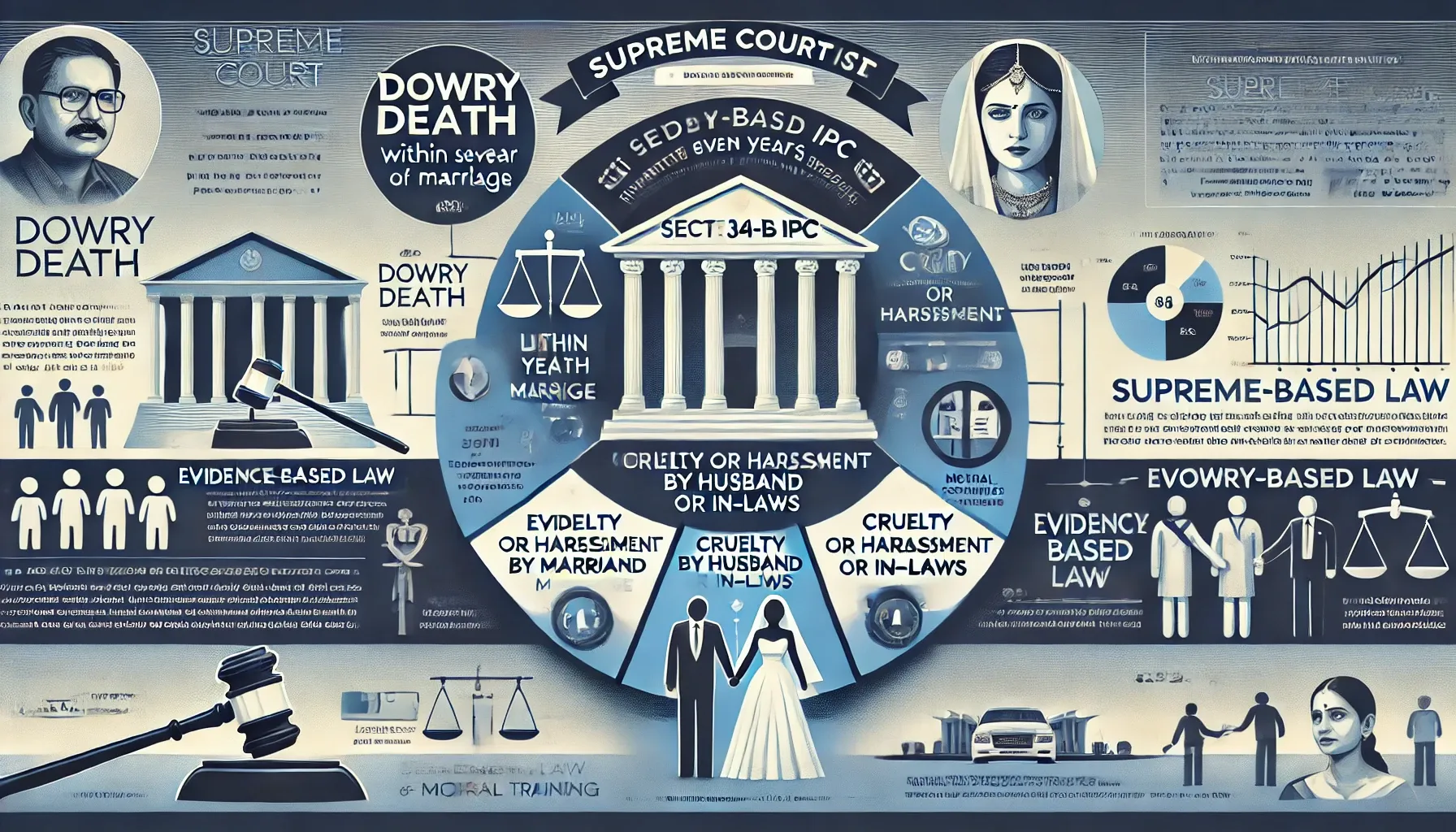The Supreme Court quashes a dowry death conviction, calling out trial courts for misapplying Section 304-B IPC. The Court stresses the need for better judicial training in dowry death cases.

In a powerful judgment delivered on January 31, 2025, the Supreme Court of India took a strong stance against the wrongful convictions in dowry death cases. The Court quashed the conviction of an accused who had been found guilty under Section 304-B of the Indian Penal Code (IPC), citing repeated errors made by trial courts in applying the law. The Apex Court pointed out that these courts often misinterpret crucial aspects of dowry death cases, and called on State Judicial Academies to step in and improve the training of judges handling such sensitive cases.
Key Highlights:
- Appeal Against Wrongful Conviction:
- The appellant was convicted for dowry death and cruelty after his wife’s tragic suicide.
- The trial court sentenced him to eight years in prison, which was upheld by the High Court.
- The appellant appealed to the Supreme Court, arguing that the legal provisions were misapplied.
- The Ingredients of Section 304-B IPC: The Court broke down the essential elements required to convict someone under Section 304-B, which deals with dowry death:
- The death must have been caused by burns, bodily injury, or occurred under unnatural circumstances.
- The woman must have died within seven years of marriage.
- The woman must have been subjected to cruelty or harassment for dowry demands, just before her death.
- Misapplication of Section 113-B of the Evidence Act:
- The Court clarified that to invoke the presumption under Section 113-B, the prosecution must prove the woman was subjected to dowry-related cruelty shortly before her death.
- Without solid evidence, presumptions under Section 113-B cannot be applied.
- Court’s Critique of Evidence:
- Upon reviewing the evidence, the Supreme Court found serious flaws:
- The deceased’s mother provided inconsistent statements about the dowry demands and acts of cruelty.
- The statement she gave in June 1998, more than two and a half months after the incident, was viewed as an afterthought.
- The deceased’s brother also failed to mention any maltreatment or dowry-related abuse in his earlier statements.
- The allegation of the appellant beating the deceased was deemed vague and not supported by evidence.
- Upon reviewing the evidence, the Supreme Court found serious flaws:
- Court’s Conclusion:
- The Court found the prosecution’s case weak, noting that the necessary facts under Section 304-B were not proven.
- It also observed that trial courts are making the same mistakes repeatedly in dowry death cases, leading to wrongful convictions.
- “Section 304-B of the IPC was brought on the statute book in 1986. This Court has repeatedly laid down and explained the ingredients of the offence under Section 304-B. But, the Trial Courts are committing the same mistakes repeatedly. It is for the State Judicial Academies to step in. Perhaps this is a case of moral conviction.”
- The Court’s Call for Judicial Reform:
- The Supreme Court strongly emphasized the need for better training for judges in dowry death cases.
- It pointed out that judges are often misguided by moral convictions rather than focusing solely on evidenceand legal principles.
- The Court urged State Judicial Academies to intervene and ensure that judicial officers are properly trainedto apply the law accurately.
Impact on the Legal System:
This decision highlights the critical need for judicial reform, especially in dowry death cases, where convictions can have life-altering consequences. The Supreme Court’s ruling calls for a more evidence-based approach and less reliance on moral judgments in courtrooms.
The ruling serves as a reminder that justice cannot be delivered based on assumptions or moral outrage but must be grounded in facts, evidence, and proper legal procedures. It also serves as a call for accountability within the judicial system, especially in sensitive and emotionally charged cases like dowry deaths.
Case Title: KARAN SINGH v. STATE OF HARYANA., CRIMINAL APPEAL NO. 1076 OF 2014
Attachment:





